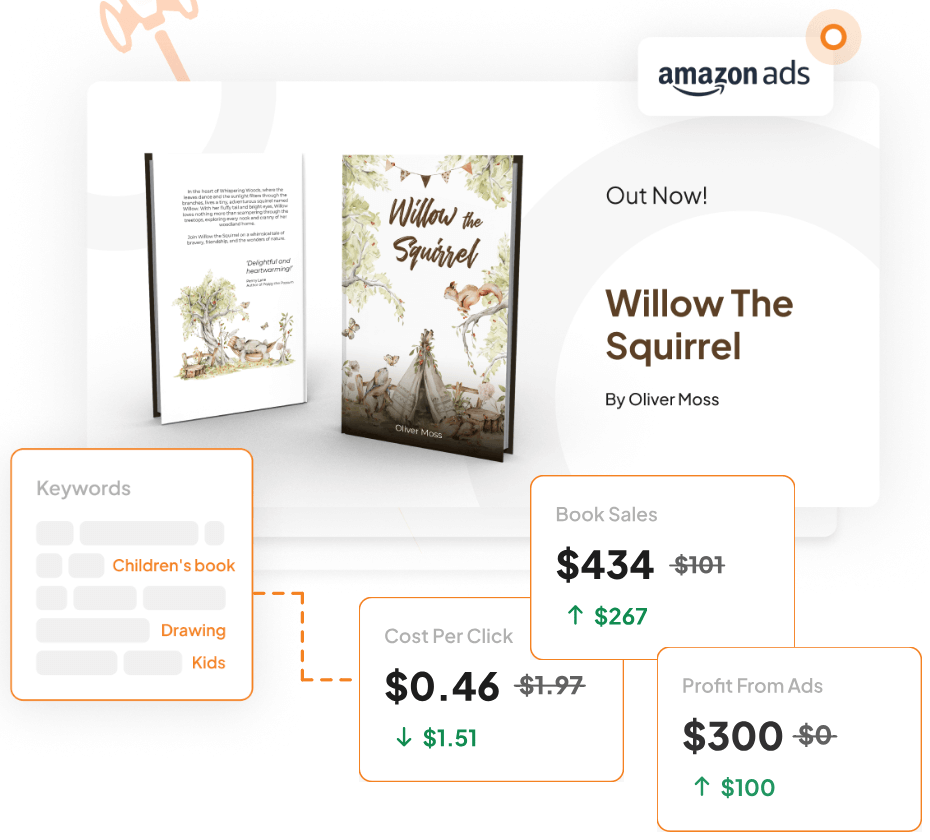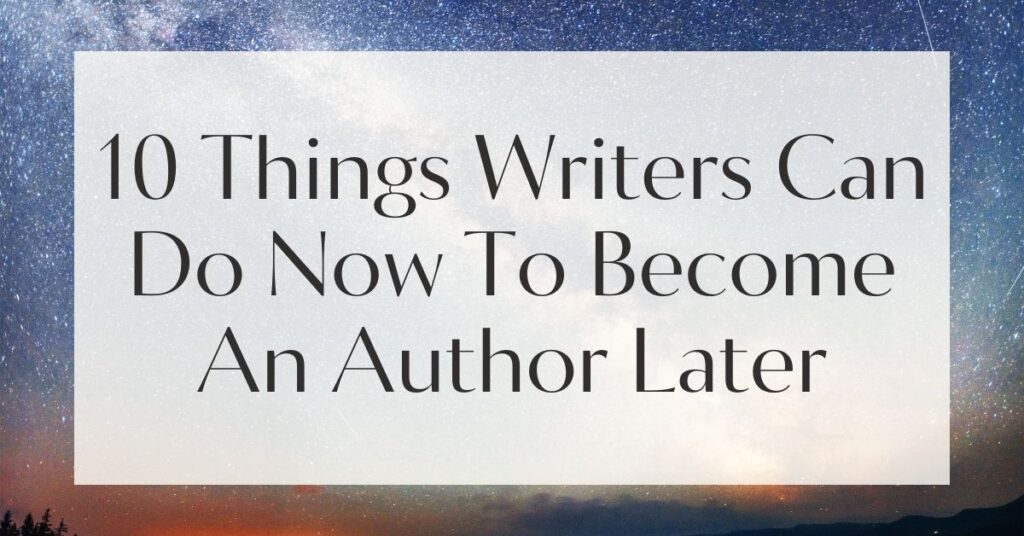Have you ever dreamt of seeing your name on the spine of a book? Imagine holding your very own creation, feeling the weight of your words in your hands. For many, becoming an author is a lifelong ambition, a dream fueled by passion and creativity.
But how does one transition from a writer to a published author? It’s not just about having a great idea; it’s about nurturing that idea through discipline, strategy, and perseverance.
Let’s embark on this journey together, exploring ten essential tips that can unlock your potential and pave the way to literary success.
Understanding the Journey to Becoming an Author
Every author’s journey is unique, like a winding river carving its path through the landscape. For some, the journey begins with a spark of inspiration, a moment of clarity that demands to be penned down.
For others, it’s a gradual process, where stories are shaped over years of practice and dedication. Regardless of the starting point, the journey to becoming an author is as much about the process as the end goal.
It involves understanding the intricacies of storytelling, character development, and the nuances of the publishing world. Aspiring authors must embrace the duality of creativity and structure, allowing their imagination to flow while adhering to the rules of effective writing.
The Importance of Establishing a Writing Routine
Imagine trying to train for a marathon without a consistent exercise schedule. Just as athletes need a routine to build endurance, writers require a writing routine to hone their craft. Establishing a regular writing habit is crucial for progress and productivity.
Consistency breeds familiarity, and familiarity breeds mastery. By dedicating specific times each day to writing, you create a space where creativity can flourish. A writing routine not only enhances your skills but also helps you overcome writer’s block, ensuring that inspiration strikes more frequently.
If you’re new to a writing routine, start small. Dedicate just 15 minutes a day to writing. Over time, gradually increase the duration. This will build discipline and make the habit stick.
Feeling lost with your debut novel?
Fiverr Pro connects you with expert editors, designers, and marketers – everything you need to get your book ready for success!

Building Your Personal Brand as a Writer
In today’s digital age, a writer’s personal brand is as important as their manuscript. Your personal brand is what sets you apart in a crowded marketplace. It’s your unique voice, perspective, and promise to your readers.
Building a personal brand involves more than just creating a social media presence; it requires authenticity and consistency. Consider what makes your writing unique and how you can communicate that to your audience.
Engage with your readers, share your journey, and let them in on your creative process. A strong personal brand not only attracts readers but also builds trust and loyalty.
| Personal Branding Tips | Benefits |
|---|---|
| Define your unique selling proposition | Sets you apart from other writers |
| Engage authentically with your audience | Builds trust and loyalty |
| Be consistent across all platforms | Enhances recognition and credibility |
Navigating the Publishing Process
Once you’ve honed your craft and built a brand, the next step is navigating the often daunting publishing process. This involves understanding different publishing routes, from traditional publishing houses to self-publishing platforms.
Each path has its own set of challenges and rewards. Traditional publishing offers credibility and support, while self-publishing provides creative control and higher profit margins.
Research thoroughly, network with other authors, and seek mentorship to make informed decisions about your publishing journey.
Attend writing conferences or workshops to connect with industry professionals. Networking can provide valuable insights into the publishing process and open doors to opportunities.

Embracing Feedback and Critique
Feedback is the lifeblood of improvement. As writers, we often become attached to our work, making it difficult to see its flaws. Embracing feedback and critique with an open mind is essential for growth.
Join writing groups or online forums where peers can offer constructive criticism. Remember, feedback is not a personal attack but an opportunity to refine your skills. Use it to polish your manuscript and elevate your storytelling.
Developing a Supportive Writing Community
No writer is an island. The journey to authorship can be isolating, but it doesn’t have to be. Developing a supportive writing community can provide encouragement, accountability, and inspiration.
Connect with fellow writers through local writing groups, online communities, or social media. Share your struggles and triumphs, and celebrate the successes of others. A strong community not only offers support but also fosters creativity and collaboration.
Crafting Compelling Characters and Plots
At the heart of every great story are compelling characters and engaging plots. Crafting characters that resonate with readers involves giving them depth, flaws, and desires.
Plots should be well-structured, with tension and conflict that keeps readers turning the pages. Study the works of authors you admire, analyze their techniques, and experiment with different narrative styles.
Remember, storytelling is an art that combines imagination with technique.
Google Docs is for notes. Scrivener is for novels. Upgrade your writing game and try it for free today!

Staying Motivated on the Path to Publication
The road to publication is fraught with challenges, from writer’s block to rejection letters. Staying motivated requires resilience and determination.
Set realistic goals, celebrate small victories, and remind yourself of why you started writing in the first place. Surround yourself with positive influences, whether it’s a favorite book, a mentor, or a community of fellow writers.
Motivation is the fuel that propels you forward, even when the journey seems daunting.
Celebrating Your Progress and Successes
Finally, take the time to celebrate your progress and successes, no matter how small. Each word written, each page edited, and each milestone reached is a step closer to your goal of becoming an author.
Celebrating these achievements boosts morale and reinforces your commitment to your craft. Keep a journal of your journey, documenting your challenges and triumphs.
Reflecting on your growth can provide the encouragement needed to keep pushing forward.

Conclusion: Your Path to Becoming an Author
Reflecting on Your Aspirations and Goals
As you stand at the threshold of your writing journey, take a moment to reflect on your aspirations and goals. What does becoming an author mean to you? How do you envision your future as a storyteller? Reflecting on these questions can provide clarity and direction, guiding you as you navigate the path to publication.
Tips for Writing Daily and Staying Consistent
Consistency is key in writing. Set aside dedicated time each day to write, even if it’s just for a few minutes. Create a comfortable writing space free from distractions.
Use tools like writing prompts or timers to stay focused. Remember, writing is a muscle that strengthens with use.
No marketing platform? No social following? No problem!
Publisher Rocket helps you market your debut novel like a pro.
It’s a gamechanger for debut authors – try it today!


Creating a Unique Author Identity
Your author identity is your fingerprint in the literary world. It’s the essence of who you are as a writer.
Embrace your unique voice and experiment with different styles and genres. Your identity will draw readers to your work and keep them coming back for more.
Understanding Your Audience and Market
Understanding your audience is crucial for success. Research your target market, identify their preferences, and tailor your writing to meet their needs.
Engage with your readers through social media, newsletters, or book signings. Building a relationship with your audience fosters loyalty and ensures your work resonates with them.








